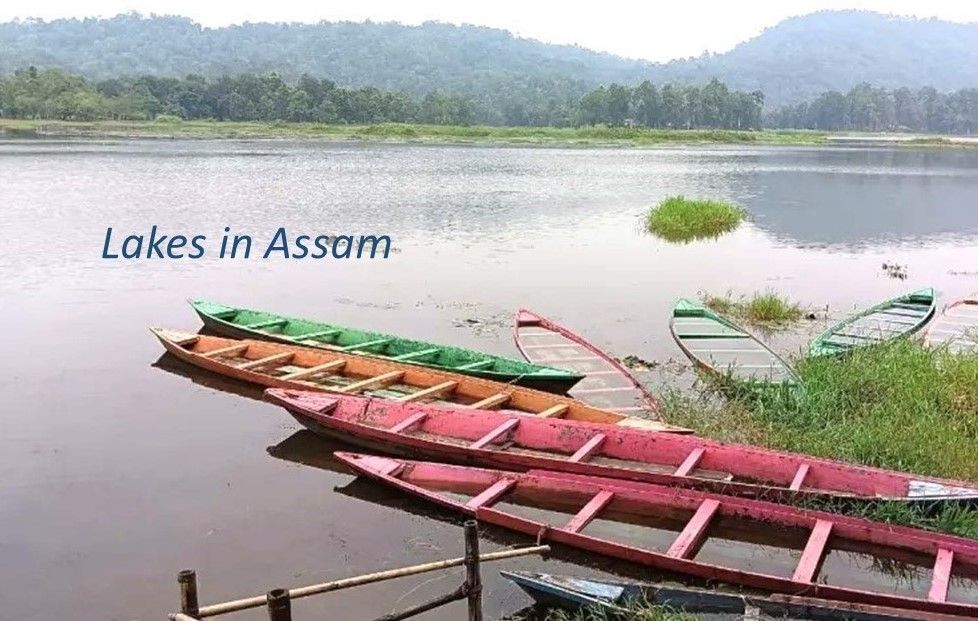
Nestled in the lush green landscapes of north-eastern India, the state of Assam is famed for its tea plantations, vibrant festivals, and rich silk heritage. While these aspects have firmly rooted Assam’s identity on the map, its captivating natural water bodies especially the lakes present another awe-inspiring dimension of the state’s ecological and cultural wealth. The lakes of Assam, tranquil and teeming with life, are more than just picturesque sites; they’re essential to the environment, the economy, and the soul of the region.
Haflong Lake: Leisure Amid the Hills
Perched in the heart of Haflong Town, Haflong Lake stands out as a symbol of Assam’s lesser-known hill station charm. This lake, maintained by the Dima Hasao Tourist and Forest Department, is a hotspot for leisure activities** like boating and angling. Tourists are drawn by its calm waters and the rolling hills in the backdrop. As one of the few lakes in Assam accessible year-round for water sports, Haflong Lake plays a key role in local tourism and community engagement, offering sustainable livelihoods through hospitality and recreation.
Son Beel: The Living Wetland
In the southern district of Karimganj lies Son Beel, Assam’s largest wetland. This multifunctional lake undergoes a remarkable seasonal transformation a rice field in winter and a sprawling lake during the monsoons. Its dual identity reflects the ingenuity of Assamese agricultural practices, while also posing unique ecological benefits and challenges. It serves as a breeding ground for diverse aquatic life, including the local delicacy Bhujia fish. However, its water levels rise sharply during intense rainfall, flooding the surrounding areas and flowing into the Kushira River system that leads to Bangladesh. The lake is also a critical habitat for migratory birds and various fish species, making it an ecological treasure.
Kumri Beel: Nature’s Picnic Spot
About 11 kilometers from Goalpara, Kumri Beel is a Natural Lake and a beloved destination for picnics and birdwatching. It attracts seasonal migratory birds and acts as a mini wetland ecosystem supporting flora and fauna. The calm waters are perfect for boating, and the surrounding greenery makes it an inviting place for families and tourists to relax. Its relatively untouched beauty stands as a reminder of the smaller, lesser-known water bodies that quietly enrich Assam’s ecological tapestry.
Dipor Bil: Wetland of Global Significance
Recognized as a Ramsar Wetland Site, Dipor Bil near Guwahati is a crucial ecological zone in Assam. With a surface area of over 4,000 hectares, this beel (as lakes are often locally known) is not just a lake it is a lifeline. Local communities rely on it for fishing, aquatic plant harvesting, cattle fodder, and even boro paddy cultivation. Dipor Bil also functions as a waterway and a flood buffer during the monsoon season.
However, Dipor Bil is under threat. Unregulated urban expansion, pollution from wastewater, encroachment due to brick kilns, and overfishing pose serious challenges. Conservation efforts are needed to preserve its biodiversity and continue supporting the dependent communities.
Other Noteworthy Lakes
Assam is also home to Urpad Beel and Padum Pukhuri Lake. While smaller in size, these lakes have their own ecological and cultural relevance. Urpad Beel is popular among birdwatchers, and Padum Pukhuri (meaning Lotus Pond) offers a tranquil escape, particularly known for the blooming lotus flowers that float across its surface during the summer months.
Lakes as Stewards of Culture and Ecology
What ties all these lakes together is their deep connection to both nature and local life. For centuries, these water bodies have been integral to Assamese culture sites of festivals, rituals, and day-to-day sustenance. They are key nodes in the ecological network, fostering biodiversity, supporting agriculture, and sustaining village economies.
As tourist attractions, they bring people closer to Assam’s natural splendor. Responsible tourism eco-friendly boating, birdwatching, and local guides—can provide a livelihood for residents while keeping the lakes pristine for generations to come.
Looking Ahead: Preserving Assam’s Natural Beauty
In the era of climate change and rapid development, lakes in Assam face numerous threats from pollution to encroachments. The urgent need lies in community led conservation initiatives, supported by scientific research and sustainable Tourism models. Educational programs and nature walks around these lakes could foster greater Ecological Awareness, especially among younger generations.
The lakes of Assam are not just water bodies they are storytellers, holding within them tales of earthquakes, migrations, seasons, and traditions. They remind us that while rivers may flow and mountains may stand tall, it is in the still waters of a lake that a culture often finds its most profound reflection.